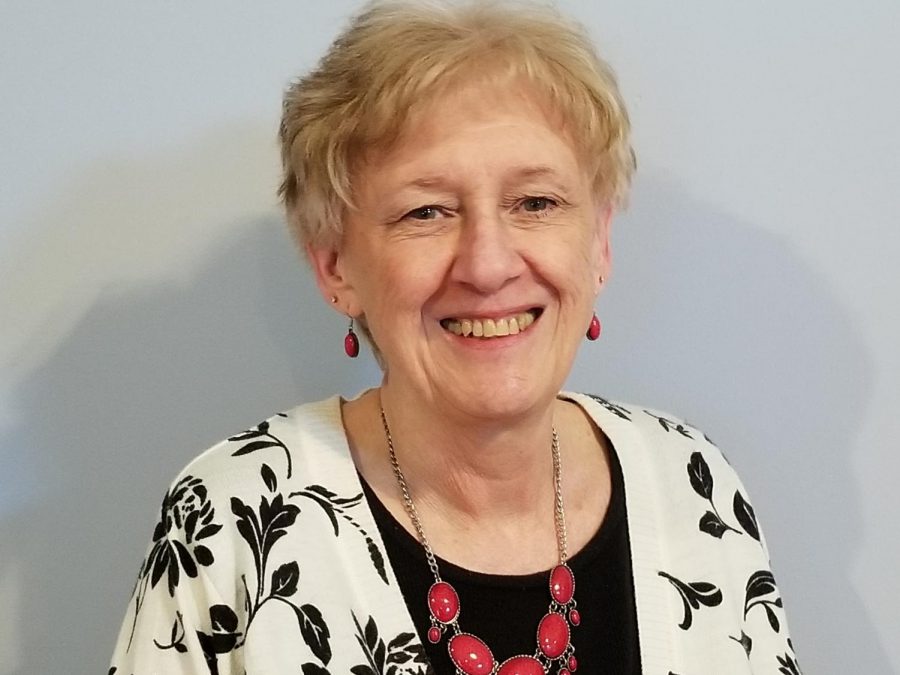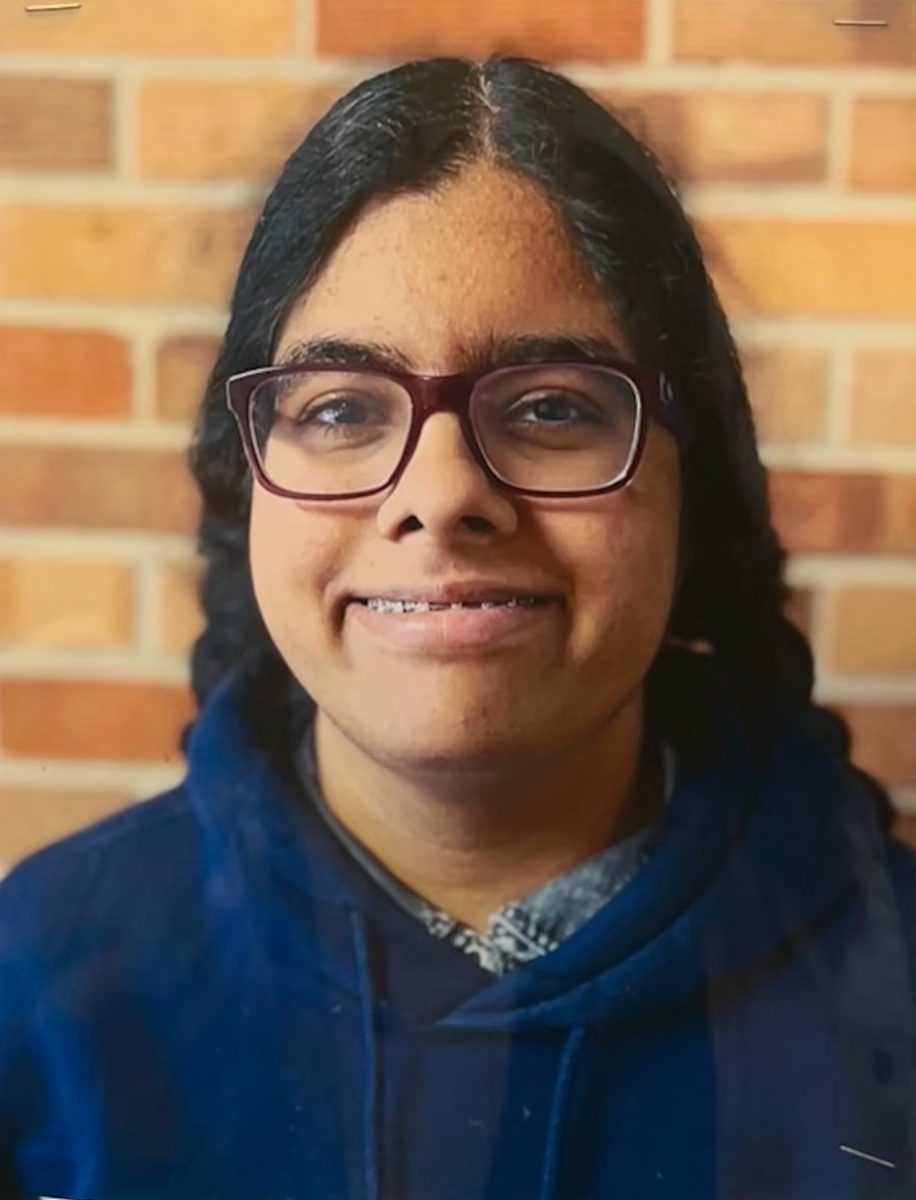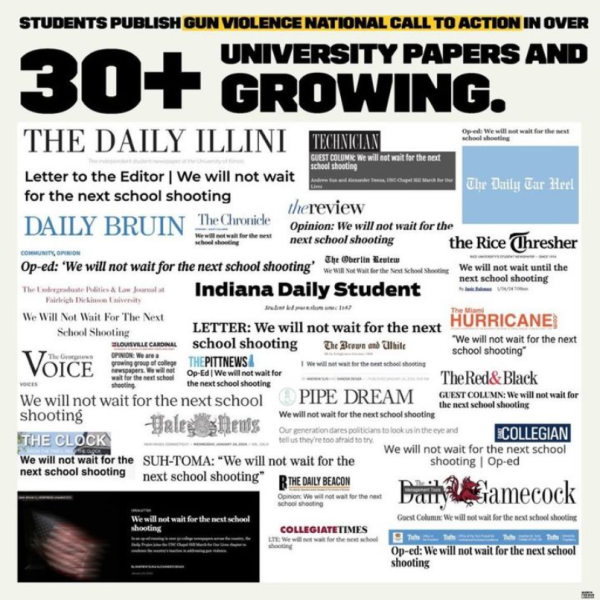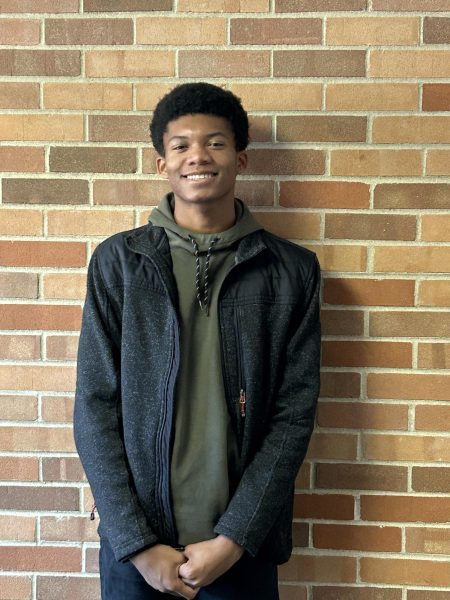Anna Klimkowicz – 2021 District 211 Board of Education Election Candidate Questionnaire
March 18, 2021
The Viking Logue sent out a questionnaire to all nine candidates in the District 211 Board of Education race. Below is candidate Anna Klimkowicz’s unabridged response. See here for The Logue’s full coverage of the April 6 election, including other candidates’ responses to the questionnaire.
Background
BIOGRAPHY: Tell us about yourself. What qualities, experiences, and skills make you a good choice for the Board?
I have had the privilege to serve as Board Member for 23 years. It has been amazing to see how the district has grown and developed over these years. I strive to encourage the District to develop and learn so that we can provide a safe educational environment for students, our staff and the community.
My background is in the human services field. For the past 10 years I have worked at a non-profit serving as the Housing Program Manager assisting individuals facing housing insecurities, food insecurities and employment challenges. Prior to this I worked in the General Assistance Department at Schaumburg Township for 19 years. My passion in dealing with those in crisis lead me to getting my Master in Human Services and becoming a Licensed Professional Counselor. I have gravitated to working part-time as a substance abuse and gambling counselor. Listening to people and helping them work towards their goals has been extremely rewarding and something I enjoy. Everyone needs to be heard.
The values that I bring are: integrity, commitment, knowledge and leadership.
My involvement in the community includes, PTA, Girl and Boy Scouts, Schaumburg Peer Jury, Volunteer at WING’s, Volunteer at CAC, Schaumburg Athletic Association, and Schaumburg High School VIP. And most recently, a member of the Governor’s Task Force for Social Emotional Learning.
I also serve on various Board committees and as the Governing Board Member to Northwest Suburban Special Education Organization (NSSEO) for our special needs students.
MOTIVATIONS: Why did you decide to run for the Board of Education? What would be your top priorities if elected?
My motivation to seek re-election is to safeguard our schools so our communities can continue to depend on them for excellence far beyond any single board or board member’s term. I’ll use my experience as a board member to make sure we provide opportunities and support to every family, especially because the need for both continues as a result of the pandemic. I listen to all points of view and fairly consider arguments or concerns on their merits, regardless of origin, because effective school board members balance everyone’s interests and show aptitude for teamwork.
I see four areas of need:
- Academic and Social Emotional Support: My first priority is expanding social-emotional supports to students, their families, and staff. Students cannot learn if they are coping with trauma and we need to make sure our school counselors and community partners are ready to provide the help they need.
- Finances: Maintain fiscal responsibility and remain debt free.
- Strategic Plan: Review the key priorities and goals of the 2016 Strategic Plan to determine the future direction in order to best envision “The 211 of Tomorrow.”
- Equity Team: This past summer our students pushed us to implement an equity initiative to make sure everyone feels valued and connected to our school community. We started thatprocess the fall of 2020 and I would like to see that work through to the end.
COVID-19
How can the district support the mental health, physical well-being, and academic achievement of students during the pandemic? How should the district approach reopening?
COVID-19 is a traumatic event that has caused disruption in every aspect of our lives – education, finances, jobs, socializing travel and death of family members, friends and even strangers. Therapeutic support is a must; however, each person approaches it differently. As for our students, I support all opportunities for our students to be in the school building, be it in class, academic supports, activities and sports. The ability to socialize is important to all, especially teens.
As a district we upgraded our ventilation systems and increased sanitation. We aggressively purchased personal protective equipment well beyond the minimum requirements and used it to offer safe in person learning to our most vulnerable students in early fall. We expanded into opening for safe in person learning for all students soon afterward and made sure the 50% of our families who requested remote learning did so right alongside their in person peers.
We cannot say that all students learn the same, therefore our teachers provide differentiated teaching. It was important to have staff in the classroom to provide a stronger learning environment. Staff have seen students struggle and are working with them to address their needs. Many of the incompletes from the 1st semester have been addressed with additional support of mentoring, tutoring and attention of student needs. Those supports will continue. As for mental health support, that must continue and become more visible as more students return to the classroom and share their stories. Our school counselors are available, our staff is available and we have community partners for counseling services. There are numerous coping strategies that can be shared with students and staff and I would direct administration to explore these and others and see how they can be incorporated into the classes.
At this time, I believe we are planning on opening the fall of 2021 as a traditional school year.
Administration will look to the ISBE for updates and information.
Equity
STUDENT CONCERNS OVER EQUITY: Over the past year, district students have addressed the Board over racial equity and sexual violence concerns. Please describe how you would approach these issues if elected.
The issue of diversity has been raised and the board directed the administration to compile feedback from the community. Students and community member input is vital to addressing diversity and we are able to begin exploring this through the D211 Equity Teams, which started at the end of October and continue to meet and discuss areas that require focus. The committee I serve on is the Equitable Practices & Mindset Committee and our areas of focus include the following categories: school culture; behavior interventions and supports; employment matters. There are amazing students that are part of this committee who have shared their experiences, observations and recommendations for the betterment of their peers and to provide equity understanding for the adults.
Sexual violence is unacceptable and needs to be addressed. As a board we have requested a report from the administration as to how this topic is discussed in school, how issues are handled and how do we go forward.
It is possible we need to spend time discussing “Erin’s Law” more in depth in health classes. Continue to work with NWCASA and with WING’s for information, materials and supports. I expect more information at the March 18th board meeting as a presentation.
TRANSGENDER STUDENT LOCKER ROOM ACCESS: After five years of vocal community input from both sides of the issue, the district in January 2020 implemented a policy to allow transgender students unrestricted use of the locker room corresponding to their gender identity. What approach should the district take toward transgender student locker room access?
As a board member I support District 211’s commitment to providing and maintaining a safe and supportive learning environment for all students. The Board utilized all of its resources to provide that safe environment and will continue to do so. The district has developed a policy that was worded by the district and not the court or outside sources. The policy and the procedure provide the district with direction and oversite to maintain equal educational opportunities for all students.
Fiscal Policy
PROPERTY TAXES: Striking the right balance between minimizing the tax burden on district residents and ensuring the future financial security of the district is challenging, especially during these economically uncertain times. What is your stance on abating or rebating a portion of the district’s property tax levy?
I believe that the next school year will come with many unknown expenses for we are still working to determine the needs of students and staff after a year of change and uncertainty. The CPI-U rate of 1.4% will be the limiting rate for the 2021 levy, which is lower than the current rate of 2.3%. This will have an impact on the amount of tax dollars the district receives. The Tax Cap laws restrict the district to increase the levy only by the increase of CPI plus and EAV of new construction. The recommended levy amounts are determined by the amount of funds needed to support general operating costs for educational purposes along with support for ongoing building and maintenance costs and transportation.
Over the last 10 years, we have abated over $30 million dollars which decreased the levy and saved the property taxpayer money. The district is debt free, which is why it is important that we maintain sufficient funds for repairs, technology, and modernization of student classrooms, additional learning spaces and improvement across all school auditoriums, along with general maintenance.
I am weighing all factors regarding an abatement, and at this time would support the abatement over a rebate. A rebate is a complicated matter and may not achieve the results some people want. The proceeds from the land sale should be used to benefit the students, for this is a one-time source of revenue and should be considered for expenses that are non-recurring in nature.
EXPENDITURES: In which areas should the district focus its spending? Are there areas where spending should be cut?
The Board had a fiduciary responsibility to its community. Prior to the referendum in 2005 District 211 reviewed all of its expenditures and incomes to address what at that time was a decrease in fund balance, this resulted in a savings of about $ 5million dollars. The referendum passed and our finances have remained stable and the district has been able to provide well maintained buildings, technology, improved classrooms and expanded curriculums at our schools.
Yes, we can and should review all of our expenditures and make changes where we can.
Role of the Board
COMMUNICATION WITH THE COMMUNITY: Recent months have shown increased community interest in Board proceedings. How should the district communicate with the community? How should the community be able to communicate with the district?
I strongly encourage community members to come to the board meetings, and address the board, for this is an opportunity for all board members to hear the statement. The board generally does not address the statement at the time and directs the superintendent to respond. This allows for a review of the statement or concern and the opportunity to research, evaluate or explore the statement and provide the speaker with the requested information.
An individual can always communicate with their school administration, district administration, or with the board through email or a call. However, if specific information is requested then it would be best to request a Freedom of Information Act (FOIA) in writing, directed to the superintendent. The board president of District 211 serves as the contact point for the board; however, communication is copied to the entire board.
There is a Code of Conduct for Members of the School Board that provides guidance so that board members continue to represent the public in education.
COOPERATION WITH OTHER BOARD MEMBERS: While the vast majority of Board resolutions are passed unanimously, many important votes have come down to a 5–2 split. Additionally, some have raised concerns over the introduction of divisive politics into local elections. Please comment on how you would work with other Board members if elected.
I do believe that the seven members who serve on the Board bring their strengths and talents so that students receive the best education and opportunities that the district can provide, while keeping in mind the needs of the community and financial responsibilities. An open discussion during a meeting of the Board of Education is vital as we move forward. The meeting is where discussion and then direction is given to the administration. The authority of the board is when we act as a group through votes taken at properly convened meeting.
An understanding of Board governance is vital, to the strength and direction that the District takes. The Board delegates authority to the Superintendent to manage the district and provide leadership to the staff. I support discussion, I listen to all points of view and fairly consider arguments or concerns on their merits, regardless of origin and I will continue to do so. Open communication is necessary and everyone needs to be heard.
School board elections are non-partisan elections; however, community members who support candidates may be of a particular party, which the candidate cannot control. School Board members must support the students of the entire community.
Final Thoughts
OTHER ISSUES: You may feel strongly about an issue for which we did not ask a question. If this is the case, please take the opportunity to share your thoughts on that issue here.
Development of a new strategic plan. Five years have now passed since the approval in August 2016 of the strategic plan. This plan identified four strategic areas: Life Readiness; Professional Responsiveness; Community Partnerships; Organizational Effectiveness and has served as the written directive over these five years. It will be time to review the key priorities and goals of each strategic area to determine the future direction and what areas need to be added, expanded or redirected and how best to envision “The 211 of Tomorrow.” The strategic plan provides the community with the opportunity to share their thoughts, concerns and suggestions to help prepare our youth for the future.
A POSITIVE NOTE: It’s been a rough year, so let’s end this on a positive note. What is your favorite thing about District 211?
I enjoy talking to students, it’s always a fresh perspective on life. I continue to be amazed at the talents of our students. The concerts, plays, sporting events, displays of artwork, writings, etc. all have been impressive. The best is watching how students interact with one another, there is joy and laughter. I have also seen students being supportive, which truly shows compassion. Students are resilient – thank you!








